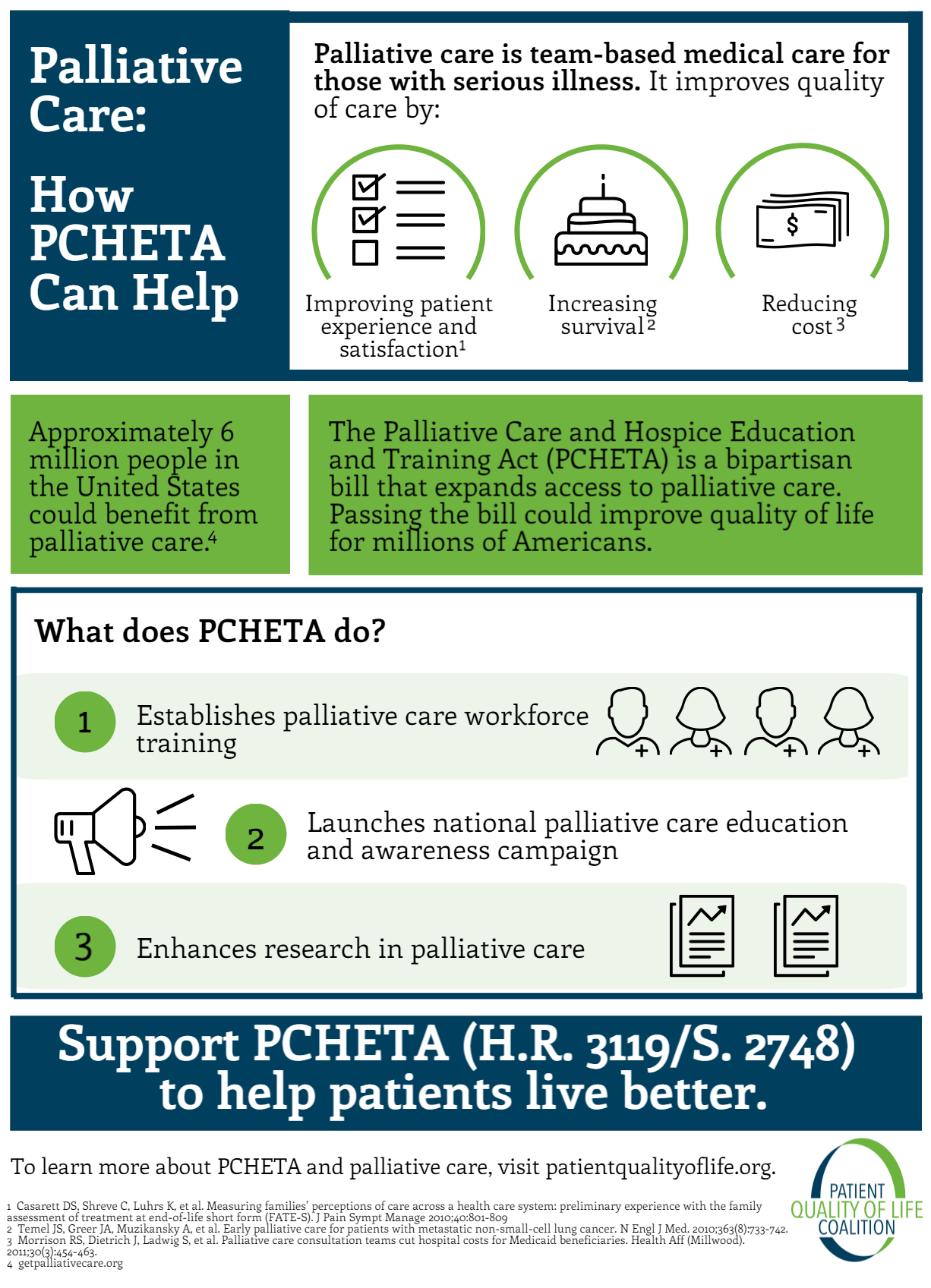Navigating the uncertain waters of high school and college can be challenging for anyone. Imagine spending those pivotal years with a serious illness.In the face of chronic pain and discomfort, constant doctor’s visits and hospitalizations and the stress that comes with giving up so much at such a young age, her goal is simple: to live the best life possible. … Read More
Get Palliative Blog
Let’s talk about constipation
Constipation. Everyone hates having trouble going to the bathroom and we certainly don’t like to talk about it, but it’s an important subject. If you have a serious illness, constipation is one of the most common problems you are likely to have.
Palliative care can help. Palliative care is specialized medical treatment for people with serious illnesses. It can treat your pain and symptoms, including your constipation, so that you can live more comfortably. … Read More
PCHETA: federal legislation for palliative care. Become an advocate today!
Palliative care and disease treatment
If you have a serious illness, your medical treatments can sometimes make you feel worse. You may also feel that your pain, your symptoms and your distress are all part of being sick. It doesn’t have to be that way. Palliative care can help. … Read More
Palliative care provides an added layer of support
New resources to help families navigate pediatric palliative care
The National Institute of Nursing Research (NINR) has created new materials for families of children with serious illnesses, as part of its Palliative Care: Conversations Matter campaign to raise awareness of and improve communications about pediatric palliative care. … Read More
NYC Alzheimer’s patients and caregivers – You can access help 24/7
Did you know Alzheimer’s is the sixth leading cause of death in the U.S.? It is estimated that more than half a million New Yorkers are either living with dementia or are taking care of someone who does.
CaringKind, a NYC-based organization focused on caregiving support for individuals and families living with Alzheimer’s and related dementias, offers MemoryLoss. This 24-hour helpline for NYC residents offers services and support, all free of charge. … Read More
Become a palliative care advocate for #PQLCLobbyDay
Today, April 27, 2016, the Patient Quality of Life Coalition is hosting its very first Virtual Lobby Day. The goal of #PQLCLobbyDay, is to raise the visibility of the Palliative Care and Hospice Education and Training Act (PCHETA) in Congress and generate excitement among its supporters.
PCHETA, also known as H.R. 3119 in the House, and S. 2748 in the Senate, would make necessary policy changes to expand access to palliative care for patients with serious illness. These changes include directing funds to educate the public and providers about palliative care; expanding the federal research investment in palliative care; and expanding workforce training and development opportunities to increase the number of doctors, nurses, social workers and other health professionals trained in palliative care. … Read More

